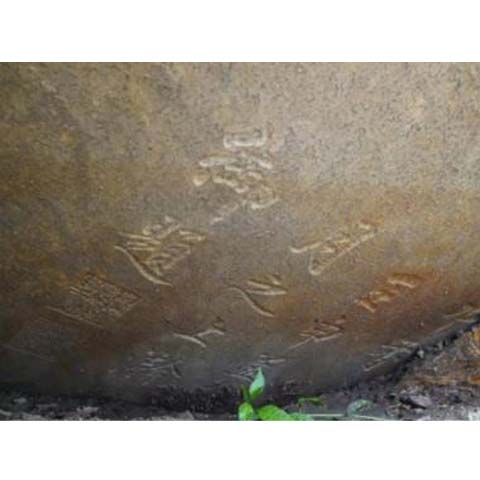This imperial writing will last forever: it is carved in stone. Qing Dynasty (1644-1911) Emperor Jiaqing’s inscriptions were found on a large stone tablet at Ruyuan Garden, the best preserved garden site at the Yuanmingyuan (Old Summer Palace) ruins.
Below the inscriptions were two seals, one featuring an imperial jade seal. Some of the inscriptions are buried underground and beyond recognition because the stone tablet is too large to move. Historical records showed the emperor typically took a boat to get to the Ruyuan Garden.
The Yuanmingyuan is in the outskirts of Beijing. An imperial residence during the Qing period, it was looted by French and British troops during the Second Opium War (1856-1860), and totally destroyed by British soldiers eventually. It was built through the 18th century and 19th century to be the main imperial residence of Emperor Qianlong and his successors, and where they handled state affairs.
The Forbidden City in Beijing was used for formal ceremonies. Excavation at the ruins started in 2013 and will continue until 2020.
So far, explorations in 22 scenic spots have been completed and over 50,000 pieces of relics have been discovered. The archaeological work began in 1996, and 50,000 square meters of the garden have been studied in detail thus far.
The imperial gardens – with their many pavilions, temples, gardens, lakes and bridges – are spread out over 3.5 square kilometers.
Categories
Emperor’s inscriptions in stone in Old Summer Palace ruins
